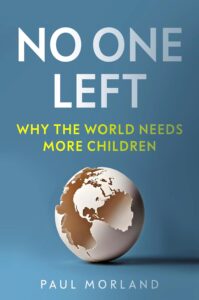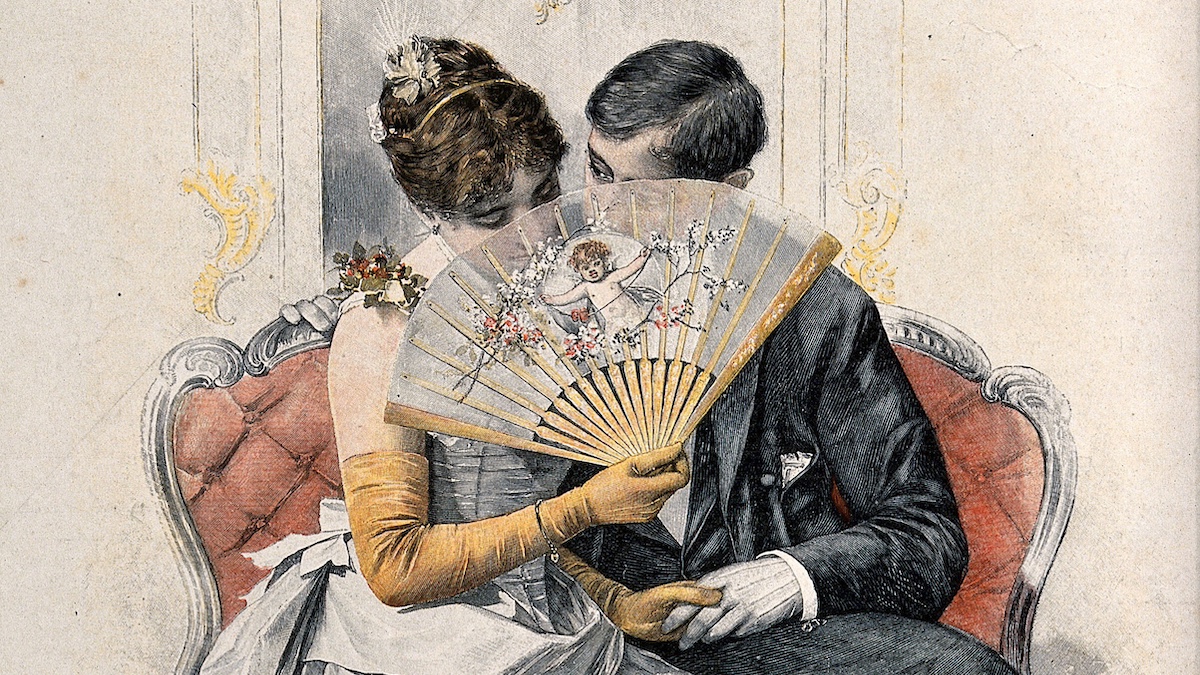The Surprising Traditionalism of ‘Are We Dating the Same Guy’ Groups
Back in the early 2010s, dating apps promised to revolutionize our culture. Now, it seemed, we could find our soulmates while sitting at home swiping through their phone. We could skip the tedious and uncomfortable process of putting ourselves out there at parties, bars, or social groups, as our parents once did. Whether we wanted “love, sex, or casual dating,” the limitless choices seemed to promise that we’d easily find what we were looking for. Unfortunately, over a decade later, dating doesn’t feel easier or more fun. For many of my generation, it’s starting to feel like a full-time job.
Expanding the dating network sounded like a good idea in theory, but dating app users have quickly found themselves overwhelmed with potential options. Women, in particular, have more options than ever before—not just in the dating market but educationally and professionally as well. They no longer have to choose between marrying young and being provided for or resigning themselves to a lifetime of financial insecurity. They can afford (quite literally) to be more selective in who they date or marry, if they wish to marry at all. Perhaps it’s unsurprising, then, that marriage is being delayed later and later in life. And, of course, widespread use of contraception has contributed to more casual attitudes toward non-marital sex.
Dating apps connect us with potential mates outside of our immediate social sphere. This is sold as a positive—we can now find our soulmate among people we would otherwise never have met—but it also means that no one we know in real life can vouch for our dates. We used to meet our partners at school, work, or through religious communities or friends. That meant that the couple knew from the start that they already had some major things—and people—in common. If a friend set us up on a date, we could expect that they’d be honest about who they had in mind for us. We couldn’t “ghost” someone because the likelihood that we would see them again (and again) was high.
App dating has removed these social safeguards from the dating equation, and basic manners and respect have disappeared along with them. Yet, in this brave new world of dating, some things have not changed. That includes the prevalence of gender-based violence. Women must still be on guard, constantly factoring in the possibility that they could be harmed by any man they encounter. Without shared social circles, women have to quickly assess for themselves the character of the men they meet.
Enter “Are We Dating the Same Guy?” Facebook groups. Dubbed “the Yelp of dating,” “AWDtSG” groups have sprung up in major urban areas over the past few years. Their mission is to help single women “sort the princes from the frogs before you even get to the kissing stage.” “Are We Dating the Same Guy” is the twenty-first-century version of the classic “whisper network” women have used to warn each other about dangerous or otherwise bad men for centuries. There has been much debate on whether AWDtSG groups actually help women, and if they are fair to men.
However, while high-profile think-pieces abound, none seem to be asking the underlying question: “Why are we ok with dating being like this?”
Girl-Power Traditionalism?
Strikingly, the posts in AWDtSG groups tend to display very traditional ideas about dating. It is common for women to say that they expect the man to do all the work in the early stages of a potential relationship—making all the plans, initiating all the contact, paying for everything, putting in the work to prove they are worthy of the woman’s consideration—in some sort of girl-power feminist spin on old-fashioned dating norms. Women today have more independent control over their futures than at any other point in history, and they are trying to use that power to re-establish some of the traditions cast off in the name of gender equality.
Although it may be hard to imagine, this neo-traditional turn isn’t an isolated example. Hookup culture has become so ubiquitous that it is apparently now “radical” to want to be monogamous. Supposedly “consequence-free” casual sex may be widely accepted, but in a post-Roe America, women are now considering how they can ensure that the men they sleep with will stick around and support them if they fall pregnant and are unable to access an abortion. Somehow, I’m convinced I’ve heard of this type of contract between couples before. Yet we are being told that these ideas are new and progressive—modern solutions to modern problems.
On the one hand, these women may have a point. Men vastly outnumber women on dating apps, and yet many women complain of men’s inability to communicate functionally or be emotionally available to them when they match. The internet had something of a field day in late 2022 when Psychology Today published an article noting recent scholarship had revealed young men are facing a “skills deficit” when it came to dating. In other words, these young men were struggling to socialize appropriately at a basic level. Women in AWDtSG will regularly report on men who string them along before asserting that they are “not ready for a relationship,” after having already spent significant time—sometimes even months—acting like a boyfriend, agreeing to regular dates, often, sex. The frequency of this experience underscores that it’s okay—good, actually—to be selective, and it certainly illustrates the value in holding off on sex in any context that is not a defined, committed relationship.
On the other hand, many of the posts in Are We Dating the Same Guy groups reveal a toxic femininity resulting from a lifelong “Girl Power” mantra reverberating through our society. Nuanced attempts to understanding patriarchy’s role in the history of gender roles in society have been replaced by the conviction that “men are trash.” To many young women, this blanket statement seems like a perfectly acceptable explanation for any instance of unfairness between the sexes. Bad dates are men’s fault, just something else on the long list of annoyances and inconveniences that come with being female. At some point, empowerment became entitlement, and it’s now a dating “red flag” if the man you’re dating has interests and hobbies that don’t include you. The “whisper network” is being used not to protect women from violence but to complain about men who don’t text back immediately.
Certainly, bad dates are no fun, but—unsafe situations aside—they are part of the game. AWDtSG may help sort the frogs from the princes, but at the end of the day, kissing the frogs helps determine what one does not want in a future partner. Additionally, what constitutes a red flag is extremely subjective, and some posts seem to be genuinely slanderous. In January, a man in Chicago filed a lawsuit against 27 women and the creator of Are We Dating the Same Guy among others for defamation.
Again, it should never be understated that intimate partner violence remains a serious risk for women. What’s more, many women have been seriously failed by law enforcement and the legal system. In the United States, greater than 66 percent of all instances of sexual violence go unreported, with fear of retaliation by the perpetrator and lack of faith in the justice system being the top reasons why victims choose not to report their assaults. To protect other potential victims, many women may feel safer taking matters into their own hands than reporting violence to the police. Intimate partner violence is not merely a “bad date,” it is a crime. That said, the majority of complaints lodged against various men in these groups are (fortunately) not allegations of sex crimes. This raises the question: is AWDtSG actually doing what it claims?
In this light, it’s hard to see Are We Dating the Same Guy as anything other than a fix for something that’s better off being scrapped altogether. A significant cultural shift appears to be on the horizon for dating, as women eschew dating apps and hookup culture in favor of romantic interactions that center basic respect and courtesy. Although dating has always been an odds game—you have to keep playing to find what you’re looking for—dating apps pushed that game into overdrive, making people feel like they have to date as many people as possible to increase their chances of success. We have allowed romantic interaction to be completely commodified, and now we’re paying the price.
A Better Way
Are We Dating the Same Guy stands as an archive full of reasons to hate app dating. Indeed, the general sentiment surrounding these apps seems to be one of dread and despair. However, the fact that dating apps are so universally hated offers a glimmer of hope. Although their ubiquity may make dating apps seem like the only option, we can simply choose not to use them. Sure, it might make finding a date a bit harder, but dating apps have only been around for a decade, and people have been meeting and marrying each other for far longer than that. Plus, if dating apps are truly this miserable, it might be worth accepting a smaller number of dates for the sake of avoiding them.
To women who wish to get back to a more traditional approach to romance, I make the following suggestions:
- Tell your friends you’re interested in meeting someone. People may have brothers (brothers’ friends), coworkers, or friends of their own they might be able to set you up with.
- Remember that a more traditional approach to dating doesn’t mean we’re teleporting back to the 1950s. It’s okay for a woman to be the first to express interest in a man. In the wake of the #MeToo movement men might play it safe by doing nothing, lest they overstep a boundary.
- Be comfortable alone. This may seem like a cliche, but being comfortable with attending events, lectures, and classes solo or picking up a hobby by yourself will ensure you expand your social network. It can be good to not have every single friend in common with the rest of your friend group.
- Take out your headphones. We make ourselves so unapproachable, and then wonder why we don’t seem to ever encounter someone worth getting to know. Women especially seem to fear that anyone trying to make small talk with them harbors nefarious intent. Some people are just friendly, and it’s usually pretty clear when that’s the case.
- Realize that successful relationships require effort and compromise. “Deal-breakers” are serious mismatches in values, beliefs, or plans for the future—not deficits in how much someone does or doesn’t text you on a given day.
The modern approach to romantic pursuits does not serve either women or men well. Recent experiments in more traditional approaches to dating and romance, by contrast, have been very well-received. Instead of spending our precious free time swiping on apps and reviewing men Yelp-style in Are We Dating the Same Guy groups, women should work together through and with their real-life social networks to set up dates and vouch for friends—the way our mothers, aunts, and even our grandmothers did.



